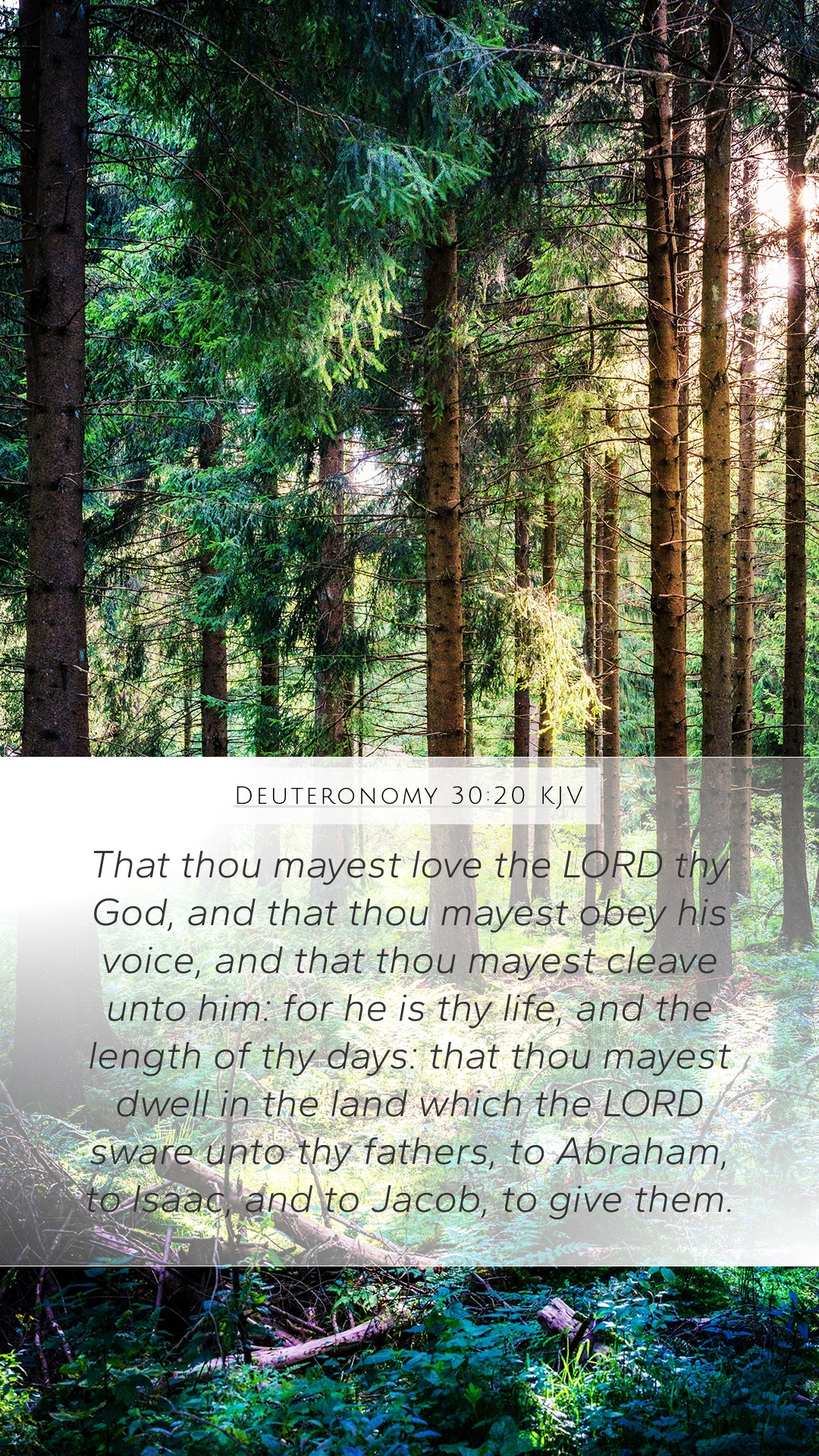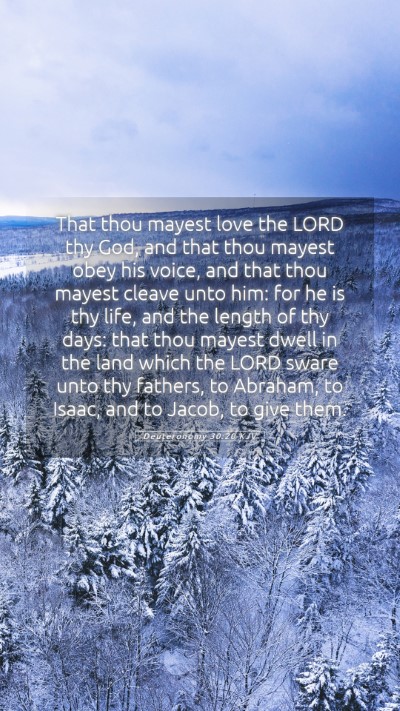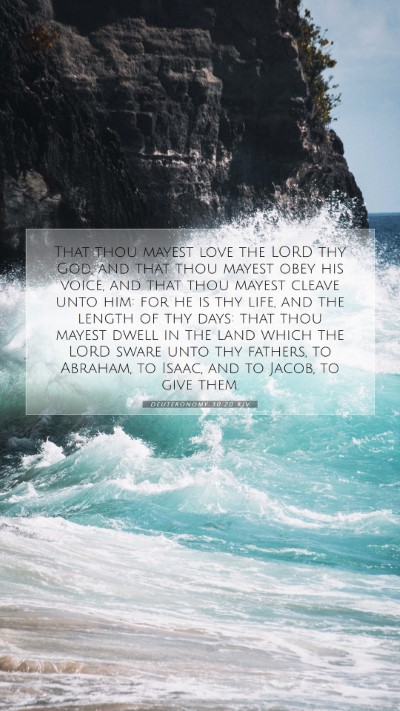Understanding Deuteronomy 30:20: A Comprehensive Bible Verse Commentary
Deuteronomy 30:20 states:
"That you may love the Lord your God, that you may obey His voice, and that you may cling to Him, for He is your life and the length of your days; and that you may dwell in the land which the Lord swore to your fathers, to Abraham, Isaac, and Jacob, to give them."
Bible Verse Meanings and Interpretations
This verse encompasses profound themes of love, obedience, and the covenant relationship between God and His people. It is a part of Moses' farewell address, emphasizing the importance of choosing life through devotion to God.
Key Insights from Commentaries
Various public domain commentaries shed light on the intricacies of this scripture:
-
Matthew Henry:
Henry emphasizes the necessity of loving God as the foundation of obedience. He notes that true adherence to God's commands stems from a heartfelt devotion. The invitation to "cling to Him" highlights a dependency on God for life and sustenance.
-
Albert Barnes:
Barnes provides an analysis on the duality of choice - life versus death. He states that this passage calls for a deliberate choice to follow God's path for a fulfilling life. The connection to the ancestors reiterates God's faithfulness to His promises across generations.
-
Adam Clarke:
Clarke elaborates on the phrase "for He is your life," interpreting it as not only physical life but also spiritual vitality. He remarks that dwelling in the promised land symbolizes living in the fullness of God's promises and blessings.
Deeper Biblical Exegesis
The context of Deuteronomy is critical for understanding this verse. Moses speaks to the Israelites poised to enter the Promised Land, and he implores them to remain faithful to God. Here are several aspects worth considering:
-
Choice and Free Will:
The verse underlines the importance of making conscious choices. The Israelites are encouraged to choose love and loyalty to God, reinforcing the concept of free will in the covenantal relationship.
-
Clinging to God:
To "cling" to God implies a steadfast commitment and trust. This is akin to how one might depend on a beloved family member for support and security.
-
The Concept of Life:
Clarke's interpretation resonates with the New Testament teachings about eternal life through Jesus Christ. This verse foreshadows the teachings of love and commitment found throughout Scripture.
Applying Bible Verses to Daily Life
Understanding the significance of Deuteronomy 30:20 can inspire personal transformation. Here are practical applications:
-
Reflecting on Love for God:
Consider ways you can deepen your love for God through prayer, worship, and obedience to His Word.
-
Choosing Life:
In moments of decision-making, weigh your options against your commitment to God's principles. Choose paths that align with His teachings.
-
Clinging to God's Promises:
In times of struggle, remember the promises God has made, drawing strength and reassurance from His faithfulness.
Related Bible Cross References
- Joshua 24:15: Emphasizes choosing whom to serve.
- 1 John 5:3: States that loving God means keeping His commandments.
- Romans 10:9: Discusses confessing faith for salvation, linking love and belief to life in Christ.
Conclusion
Deuteronomy 30:20 encapsulates a crucial choice faced by every believer: to love and obey God as a testament to one's faith. This commentary reflects the deep, personal nature of one’s relationship with God, which is foundational for understanding Scripture. Engage with this verse through Bible study groups, online resources, or personal reflection to uncover its profound truths.
Further Study Resources
- Bible study tools for enhanced understanding.
- Bible study guides that facilitate exploring Scripture.
- Bible study lessons tackling the themes of love and obedience.


